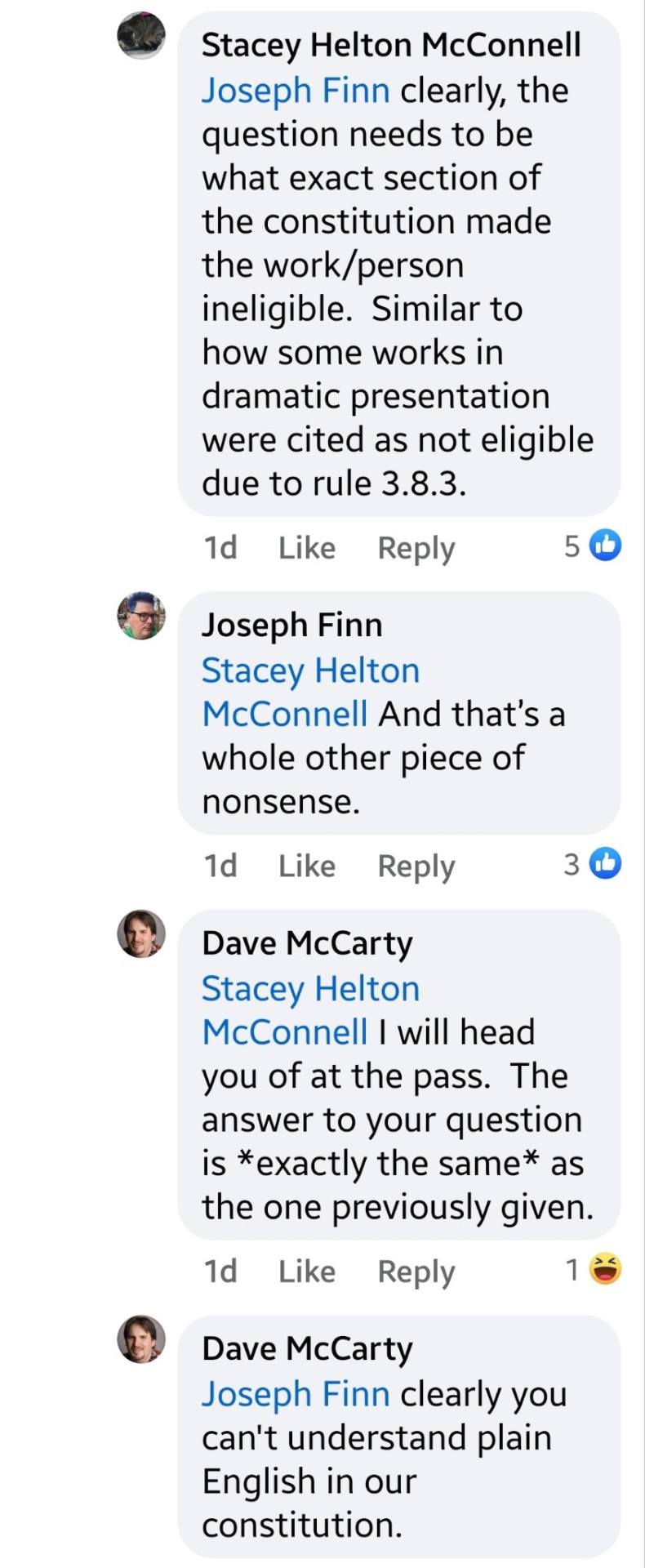Babel - Tumblr Posts
i will forever cry over how robin lost ramy and griffin after both of them saved him. only for him not to be able to continue life. because the grief was greater than he could bear. the pain was too much for him to think of the life after the strike. after all he did in the spirit of his late brother and dearest friend.
i will forever cry over robin letting victoire go. i simply couldn't find the words to describe the bond that they had. it was meant to be. victoire was the voice of reason between the two and robin just couldn't get through all of it, not without griffin and ramy. she made up her mind and so did he and it was hurtful to witness this two souls make peace with their choices. im going insane over this.
you don't even understand the first 15 pages tore me up SO BAD
in shock hearing people say that babel only takes a turn and becomes heart-wrenching at the end because that experience is so incomprehensible to my chinese diaspora ass that felt like their heart was being torn from their chest in the very first chapter likeeeee babel is underscored by such immense amounts of tragedy and loss and horror around colonialism and imperialism from the very beginning it's so crazy that white people can just read the first half of babel and not feel like every bone in their body was being dissolved in acid by the centuries of unspoken grief written in robin's experience SORRYYYYYYYY. average poc reading babel vs average white person reading babel truly LMFAOOOO
surely the next megastructure will bring us closer to god. trust me guys!
vincenzo (corn salad)






"Tramontate, stelle. All’alba vincerò. Vincerò. Vincerò."
Set, stars. At dawn, I will win. I will win.
Asteroid babel' (5808)

DISCLAIMER: ALL THESE OBSERVATIONS ARE BASED ON MY PERSONAL OBSERVATIONS ❤️
DO NOT 🚫 PLAGIARISE 🚫 MY 🚫 WORK 🚫 IF YOU WISH TO REPOST IT GIVE ME THE CREDITS 💌🧿
NAMED AFTER: ISAAC BABEL
ABOUT ISAAC BABEL AND HIS ACHIEVEMENTS
Isaac Emmanuilovich Babel (13 July 1894 – 27 January 1940) was a Russian writer, journalist, playwright, and literary translator. He is best known as the author of Red Cavalry and Odessa Stories, and has been acclaimed as "the greatest prose writer of Russian Jewry."
Babel was arrested by the NKVD on 15 May 1939 on fabricated charges of terrorism and espionage, and executed on 27 January 1940.
BABEL'S MARRIAGE LIFE AND AFFAIRS
Babel married Yevgenia Gronfein on August 9, 1919, in Odessa. In 1929, their marriage produced a daughter, Nathalie Babel Brown, who grew up to become a scholar and editor of her father's life and work. By 1925, the Babels' marriage was souring.
Yevgenia Babel, feeling betrayed by her husband's infidelities and motivated by her increasing hatred of communism, emigrated to France. Babel saw her several times during his visits to Paris.
During this period, he also entered into a long-term romantic relationship with Tamara Kashirina. Together, they had a son, Emmanuil Babel, who was later adopted by his stepfather Vsevolod Ivanov. Emmanuil's name was changed to Mikhail Ivanov, and he later became a noted artist.
After the final break with Tamara, Babel briefly attempted to reconcile with Yevgenia and they had their daughter Natalie in 1929. In 1932, Babel met a Siberian-born Gentile named Antonina Pirozhkova (1909–2010). In 1934, after Babel failed to convince his wife to return to Moscow, he and Antonina began living together. In 1939, their common law marriage produced a daughter, Lydia Babel.
BABEL'S TRAGIC ARREST AND PERSECUTION
On May 15, 1939, Antonina Pirozhkova was awakened by four NKVD agents pounding upon the door of their Moscow apartment. Although surprised, she agreed to accompany them to Babel's dacha in Peredelkino.
Babel was then placed under arrest. According to Pirozhkova(babel's affair partner turned wife) : "In the car, one of the men sat in back with Babel and me while the other one sat in front with the driver. 'The worst part of this is that my mother won't be getting my letters', and then he was silent for a long time. I could not say a single word. Babel asked the secret policeman sitting next to him, 'So I guess you don't get too much sleep, do you?' And he even laughed.
As we approached Moscow, I said to Babel, 'I'll be waiting for you, it will be as if you've gone to Odessa... only there won't be any letters....' He answered, 'I ask you to see that the child not be made miserable.' "But I don't know what my destiny will be." At this point, the man sitting beside Babel said to me, "We have no claims whatsoever against you."
We drove to the Lubyanka Prison and through the gates. The car stopped before the massive, closed door where two sentries stood guard.
Babel kissed me hard and said, "Someday we'll see each other..." And without looking back, he got out of the car and went through that door.
According to Nadezhda Mandelstam, Babel's arrest became the subject of an urban legend within the NKVD. NKVD agents, she explains, were fond of "telling stories about the risks they ran" in arresting "enemies of the people". Babel had, according to NKVD lore, "seriously wounded one of our men" while "resisting arrest". Mrs. Mandelstam contemptuously declared, "Whenever I hear such tales I think of the tiny hole in the skull of Isaac Babel, a cautious, clever man with a high forehead, who probably never once in his life held a pistol in his hands."
According to Peter Constantine, from the day of his arrest, Isaac Babel "became a nonperson in the Soviet Union. His name was blotted out, removed from literary dictionaries and encyclopedias, and taken off school and university syllabi. He became unmentionable in any public venue. When the film director Mark Donskoi's famous Gorky trilogy premiered the following year, Babel, who had worked on the screenplay, had been removed from the credits."
According to his file, "Case #419, Babel, I.E.", the writer was held at the Lubyanka and Butyrka Prisons for a total of eight months as a case was built against him for Trotskyism, terrorism, and spying for Austria and France.
At his initial interrogations, "Babel began by adamantly denying any wrongdoing, but then after three days he suddenly 'confessed' to what his interrogator was suggesting and named many people as co-conspirators. In all likelihood, he was tortured, almost certainly beaten."
His interrogators included Boris Rodos, who had a reputation as a particularly brutal torturer, even by the standards of the time, and Lev Schwartzmann, who tortured the renowned theatre director, Vsevolod Meyerhold. Among those he accused of conspiring with him were his close friends Sergei Eisenstein, Solomon Mikhoels, and Ilya Ehrenburg.
Despite months of pleading and letters sent directly to Beria, Babel was denied access to his unpublished manuscripts. In October 1939, Babel was again summoned for interrogation and denied all his previous testimony. A statement was recorded, "I ask the inquiry to take into account that, though in prison, I committed a crime. I slandered several people."
This led to further delays as the NKVD frantically attempted to salvage their cases against Mikhoels, Ehrenburg, and Eisenstein.
BABEL'S LEGACY
Although Babel's play Maria was very popular at Western European colleges during the 1960s, it was not performed in Babel's homeland until 1994. The first English translation appeared in 1966 in a translation by Michael Glenny in Three Soviet Plays (Penguin) under the title "Marya". Maria's American premiere, directed by Carl Weber, took place at Stanford University in 2004.
Several American writers have valued Babel's writings. Hubert Selby has called Babel "the closest thing I have to a literary influence." James Salter has named Babel his favorite short-story writer. "He has the three essentials of greatness: style, structure, and authority." George Saunders, when asked for a literary influence said "There's a Russian writer named Isaac Babel that I love. I can drop in anywhere in his works, read a few pages, and go, Oh yeah, language. It's almost like if you were tuning a guitar and you heard a beautifully tuned one and you say, Yeah, that's what we want. We want something that perfect. When I read him, it recalibrates my ear. It reminds me of the difference between an OK sentence and a really masterful sentence. Babel does it for me."
WHAT I THINK THIS ASTEROID COULD MEAN:
where we betray others/ where our actions can deeply hurt others
Where we become prominent
Where we get falsely accused
Where we have a tragic 'persecution' in the sense of being punished for absolutely no reason
Where we are given the recognition we deserve later
Where ppl may try to take away our credits and try to blotch our achievements
Where we are treated unfairly and then recieve justice
Where we are framed
Issues with authority
Where we may be forced to do something we don't want to do/ where we may be forced to take accountablitiy for something we didn't do.
Prominence of this asteroid exists only with conjunct to personal planets (sun, moon, venus,mars, mercury) and points (ic, ac, dc mc)
Guess who got disqualified from the Hugo Awards for unclear, most possibly political reasons!!
Award admin Dave McCarty's response to people asking why:




But this email is apparently just bouncing everything back so here's the full list of the admin team:

Guess who got disqualified from the Hugo Awards for unclear, most possibly political reasons!!
Award admin Dave McCarty's response to people asking why:




But this email is apparently just bouncing everything back so here's the full list of the admin team:

Tower of Babel: Origin of Races

Babel and Babylon Refer to the Same Place
By Bible Researcher Eli Kittim 🔎
Definition & Location
Babel is a transliteration of the Hebrew word בָּבֶל (Ba-bel), while Babylon is derived from the Greek Βαβυλῶνος (Babylonos). In the Old Testament, the word “Babel” is most often translated as “Babylon” in Greek! But besides the linguistic connection, there’s further evidence that both Babel & Babylon are located in the exact same place. For example, Genesis 10.10 & 11.2 locate Babel in the land of Shinar (שִׁנְעָֽר׃). Astoundingly, Daniel 1.2 tells us that Babylon is also located in the land of Shinar (שִׁנְעָ֖ר)! This means that Babel and Babylon are synonymous or interchangeable terms!
The Septuagint & Most English Bibles Translate Babel As Babylon
The Hebrew term “Babel” is most often translated as “Babylon” (Βαβυλὼν) in the Septuagint (aka LXX; L.C.L. Brenton translation), an early Greek translation of the Hebrew Bible. Below are the English Bible versions that *also* translate Babel as Babylon:
Gen. 10.10 (LXX, NIV); Gen. 11.9 (CSB,
HCSB, ISV); Ps. 87.4 (LXX & Most Versions);
Ps. 137.1 (LXX & Most Versions); Ps. 137.8
(LXX & Most Versions); Ezek. 12.13 (LXX &
Most Versions); Ezek. 19.9 (LXX & Most
Versions).
Even the JPS Tanakh 1917—-the Jewish Publication Society of America——often translates Babel as Babylon!
In the Greek, Babel is called Βαβυλῶνος, a term that is derived from the word Βαβυλών (Babylon). The Greek New Testament follows the Septuagint translation of rendering Babel as Babylon (see e.g. Mt 1.11-12, 17; cf. 2 Kings 24.8-10 LXX)!
Conclusion
So, if Babel & Babylon are one and the same, and if Babylon the Great——with its high towers & powerful economy——is said to be destroyed in the end-times (Rev. 18), then Babel’s apparent destruction (in Genesis 11) must also be prophetic rather than historical!
—
Guess who got disqualified from the Hugo Awards for unclear, most possibly political reasons!!
Award admin Dave McCarty's response to people asking why:




But this email is apparently just bouncing everything back so here's the full list of the admin team:











